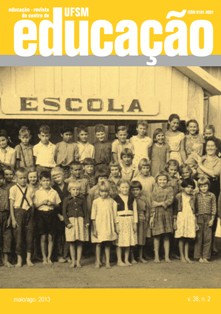The educational reform in the state of São Paulo and the “new” teaching culture
DOI:
https://doi.org/10.5902/198464445698Keywords:
Educational reform, Teaching work, Teacher.Abstract
The neoliberal ideology and the social and educational changes constitute the references for this study which investigated indications of change in the teaching culture of secondary school teachers, mainly after the implementation of the educational reform in the state of São Paulo. Considering the training that teachers now receive and comparing it to their role in the past, it seems that the work has acquired a new specificity, resulting from the expansion of this work. Teachers seek to conciliate a role of affection and socialization with the teaching of specific contents and abandon the academic aspect as central. It was also observed that teachers acknowledge that there is a decrease in the requirements after the implementation of the Continued Progression in state schools. A decisive aspect was identified: besides the configuration of the “new” teaching culture there are indications of a serious process of deterioration of schools.Downloads
Published
How to Cite
Issue
Section
License
Declaration of originality
We declare that all articles present in the journal Educação (UFSM) are originals and were not submitted for publishing on any other publication, as a whole or a fraction. We also declare that, after being published by Educação (UFSM), a paper will not be submitted to another journal within two years. After this time, our journal transfers the publishing rights to the authors, with a permit granted by the Editorial Council.
We also acknowledge that the originals’ submission to Educação (UFSM) implies on a transference of copyright for physical and digital publishing to the journal. In case of noncompliance, the violator will receive sanctions and penalties predicted by the Brazilian Copyright Protection Law (n. 9610, dated 19/02/98).
Attribution 4.0 International (CC BY 4.0)
This license lets others remix, transform, and build upon the material for any purpose, even commercially, and copy and redistribute the material in any medium or format.

This work is licensed under a Creative Commons Attribution 4.0 International (CC BY 4.0)






